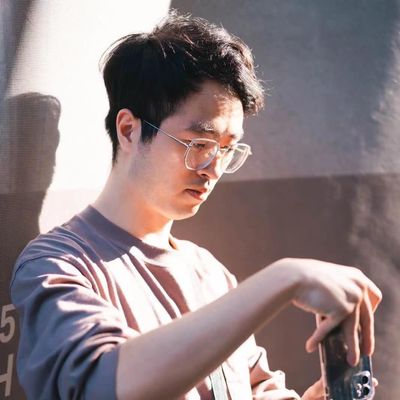category
tags
type
status
slug
date
summary
icon
password
一、什么是CCQ
在英语的教学中,教师们会注意一点,即:
老师在教授新知之后并没有去确认对方是否真的理解新知的含义,会给学生一个有偏差的意义,这样还不如不讲。
也就是说,需要一种方式,确认学生是否准确无误地理解了一个新知识的正确概念;而CCQ的提问方式,有助于确认对方是否理解概念、同时也检验自己的意图是否正确地传达。
概念检查问题(CCQ)是一个旨在帮助教师检查学生对某一语言项目(语法结构、词汇、固定表达)的理解。相反,用"你是否明白?"、"清楚吗?"、"我们都知道,对吗?"或 "好吗?"这种提问是绝对禁忌的。
二、什么时候问CCQ?
CCQ适用于当你解释新材料或需要检查学生是否知道你在说什么内容的时候,它在指导练习和课程结束时作为复习时特别有用。
通过CCQ,可以避免你的学生在你解释一个概念后仍然一头雾水、无法学以致用的情况。当一个语言概念在学生的目标语言中不存在时,请确保提出CCQs,特别是一些成语或固定表达方式时,一定要问CCQ。
当然,我们应当避免过度使用CCQs。学生们不希望感觉到他们被警察审问了。
什么是目标语言(Target Language)?
目的语既可以是非母语者努力学习的语言,也可以是译者努力将其翻译成另一种语言的语言。
三、如何提问CCQs?
有一些简单的规则可以帮助你创造好的CCQs并有效地使用它们。
- CCQs应该容易理解,在CCQs中使用简单的语言。
- 不要在CCQs中使用目标语言,例如
- E.g. I’ll meet her tomorrow
- Bad CCQ: Will I meet her next week?
- 不要在问答中使用新词汇。
- 提前计划CCQs。
- 至少提出两个CCQs,以涵盖目标语言的所有重要方面。
- CCQs应该检查目标语言的意义,而不是情况的意义。
- E.g. She’s been in bed all day
- Bad CCQ: Is he sick?
- 一些最有效的CCQs是 "是"/"否 "问题,以及非此即彼的问题。
简单的What/How、True/False。
- 为了创造好的CCQs,要借助一些简单的语句来解释目标语言。这些语句描述了该结构的含义。之后,将这些语句变成问题。
四、用CCQ来学习英语的时态
1.现在⛷️
1-1 现在简单时态 Present Simple Tense
I usually get up at 7am. (我通常在早上7点起床。)
CCQ1: Do I do that every day? (我每天都这样做吗?)
CCQ2: Is this a habit? (这是一个习惯吗?)
1-2 现在进行时态 Present Continuous Tense
She is riding a bicycle.(她在骑自行车。)
CCQ1: Does she ride a bicycle every day? (她每天都骑自行车吗?)
CCQ2: Is she riding it now? (她现在在骑吗)
1-3 现在完成时态 Present Perfect Tense
I’ve visited my granny this week. (我这周去看望了我的祖母。)
CCQ1: Has this week finished? (这周结束了吗?)
CCQ2: Do you know the exact day when it happened? (你知道事情发生在哪一天吗?)
CCQ3: Am I at my granny’s now? (我现在在我奶奶家吗?)
1-4 现在完成进行时 Present Perfect Continuous Tense
He’s been working here since 2008. (他从2008年开始在这里工作)
CCQ1: Do you know when he started working here? ( 你知道他什么时候开始在这里工作的吗?)
CCQ2: Is he still working here? (他现在还在这里工作吗)
2. 过去🍰
2-1 过去简单时态 Past Simple Tense
I saw my friend last night. (我昨天晚上看到我的朋友了)
CCQ1: Are you with your friend now? (你现在和你的朋友在一起吗?)
CCQ2: Is the action finished? (动作结束了吗?)
CCQ3: Do you know when it happened? (你知道它是什么时候发生的吗?)
2- 2 过去进行时 Past Continuous Tense
I was fishing at 10 o’clock. (我在 10 点钟钓鱼。)
CCQ1: Did I start fishing before 10 o’clock? (我是在 10 点之前开始钓鱼的吗?)
CCQ2: Was I still fishing after 10 o’clock? (10点以后我还在钓鱼吗?)
CCQ3: Was this action in progress at 10 o’clock? (这个动作是在 10 点进行的吗?)
2-3 过去完成时 Past Perfect Tense
I had fallen asleep before you arrived. (你来之前我已经睡着了。)
CCQ1: Are we talking about the past? (我们是在谈论过去吗?)
CCQ2: How many actions are there in the past? (过去有多少动作?)
CCQ3: Did both actions happen at the same time? Which happened first? (这两个动作是同时发生的吗?哪个先发生?)
2-4 过去完成进行时 Past Perfect Continuous Tense
They had been having a party for 3 hours when their mother came. (当他们的母亲来的时候,他们已经开了 3 个小时的派对)
CCQ1: Was their mother with them when the party started? (派对开始时他们的妈妈和他们在一起吗?)
CCQ2: How long were they having a party? (他们开派对多久了?)
3. 将来 📡
3-1 一般将来时 Future Simple Tense
There’s no coffee, so I’ll have some tea.(没有咖啡,所以我要喝点茶。)
CCQ1: Is this a plan or a spontaneous decision? (这是一个计划还是一个自发的决定?)
CCQ2: Are you having tea now or you want to have it in the future? (你现在喝茶还是以后想喝?)
3-2 未来连续时态 Future Continuous Tense
I’ll be having a meeting at 10am.(我将在上午 10 点开会。)
CCQ1: Does the meeting start before 10am? (会议是否在上午 10 点前开始?)
CCQ2: Is it in progress at 10am? (上午 10 点还在进行吗?)
3-3 将来完成时 Future Perfect Tense
I’ll have finished the meeting by 11:30am. (我将在上午 11:30 之前结束会议。)
CCQ1: Imagine it’s 11:30am. Is the meeting over? (想象现在是上午 11:30。会议结束了吗?)
CCQ2: Do you know the exact time when the meeting ended? (你知道会议结束的确切时间吗?)
3-4 将来完成进行时 Future Perfect Continuous Tense
She’ll have been studying here for 2 years by the end of August. (到 8 月底,她将在这里学习 2 年。)
CCQ1: Is she studying here now? (她现在在这里学习吗?)
CCQ2: Is she going to quit studying here? (她要放弃这里的学习吗?)
五、CCQ来学习词汇
His pink car stands out on the road. (他的粉红色汽车在路上显得格外醒目。)
CCQ1: Are there many pink cars on the road? (路上有很多粉红色的汽车吗?)
CCQ2: Do people pay attention to this car? (人们关注这辆车吗?)
总结
这里用英语时态的学习来了解CCQ的使用方式,而CCQ可以用在生活工作学习的各方各面,通过概念检查提问,来确保你真的学会了某项知识~在我看来CCQ可以简单理解为,CCQ = “换句简单的话问你...blabla”。
换言之,当我们在进行沟通时,为了确保对方理解到位你的意思,换个词句进行简单的CCQ,不是一种好方法吗?
参考
英文原版
Some basic tips for good concept questions are: Make sure the questions are simple and that no difficult language is required to answer the question....Checking Understanding.
Concept Checking Questions (CCQs)
A concept checking question is a question designed to helps the teacher check students’
understanding of a language item (grammar structure, vocabulary, fixed expression). “Do you
understand?”, “Is that clear?”, “We all know that, right?” or “OK?” should be absolute taboos.
When to ask CCQs?
Every time you explain new material or need to check whether students know what you are talking
about. CCQs are particularly useful after guided practice and at the end of the lesson as a review.
By asking CCQs you will not find yourself in a situation where your students keep quiet or cannot
answer questions after your explanations. Make sure to ask CCQs when a concept doesn’t exist in
the target language, when you deal with idioms or fixed expressions. Avoid overusing CCQs.
Students don’t want to feel as if they were interrogated by a policeman.
How to ask CCQs?
There are some simple rules that can help you create good CCQs and use them effectively:
- CCQs should be easy to understand, use simple language in CCQs.
- Don’t use the target language in CCQs;
E.g. I’ll meet her tomorrow.
Bad CCQ: Will I meet her next week?
- Don’t use new vocabulary in CCQs;
- Plan CCQs in advance;
- Ask at least 2 CCQs to cover all of the important aspects of the target language;
- CCQs should check the meaning of the target language, not of the situation. E.g. She’s been in bed all day.
o Bad CCQ: Is he sick?
- Some of the most efficient CCQs are yes/no questions along with either/or questions,
simple Wh-questions and true/false statements;
- In order to create good CCQs explain the target language with help of some simple
statements, which describe the meaning of that structure. After that, turn those statements
into questions.
CCQ ideas
Grammar
Present Simple TenseI usually get up at 7am.
CCQ1: Do I do that every day?
CCQ2: Is this a habit?Present Continuous TenseShe is riding a bicycle.
CCQ1: Does she ride a bicycle every day?
CCQ2: Is she riding it now?Present Perfect TenseI’ve visited my granny this week.
CCQ1: Has this week finished?
CCQ2: Do you know the exact day when it happened?
CCQ3: Am I at my granny’s now?Present Perfect Continuous TenseHe’s been working here since 2008.
CCQ1: Do you know when he started working here?
CCQ2: Is he still working here?Past Simple TenseI saw my friend last night.
CCQ1: Are you with your friend now?
CCQ2: Is the action finished?
CCQ3: Do you know when it happened?Past Continuous TenseI was fishing at 10 o’clock.
CCQ1: Did I start fishing before 10 o’clock?
CCQ2: Was I still fishing after 10 o’clock?
CCQ3: Was this action in progress at 10 o’clock?Past Perfect TenseI had fallen asleep before you arrived.
CCQ1: Are we talking about the past?
CCQ2: How many actions are there in the past?
CCQ3: Did both actions happen at the same time? Which happened first?
Past Perfect Continuous TenseThey had been having a party for 3 hours when their mother came.
CCQ1: Was their mother with them when the party started?
CCQ2: How long were they having a party?Future Simple TenseThere’s no coffee, so I’ll have some tea.
CCQ1: Is this a plan or a spontaneous decision?
CCQ2: Are you having tea now or you want to have it in the future?
Future Continuous TenseI’ll be having a meeting at 10am.
CCQ1: Does the meeting start before 10am?
CCQ2: Is it in progress at 10am?Future Perfect TenseI’ll have finished the meeting by 11:30am.
CCQ1: Imagine it’s 11:30am. Is the meeting over?
CCQ2: Do you know the exact time when the meeting ended?Future Perfect Continuous TenseShe’ll have been studying here for 2 years by the end of August.
CCQ1: Is she studying here now?
CCQ2: Is she going to quit studying here?
VocabularyHis pink car stands out on the road.
CCQ1: Are there many pink cars on the road?
CCQ2: Do people pay attention to this car?
- 作者:NotionNext
- 链接:https://tangly1024.com/concept-checking-questions
- 声明:本文采用 CC BY-NC-SA 4.0 许可协议,转载请注明出处。




